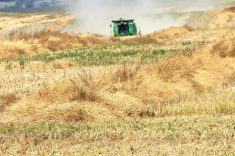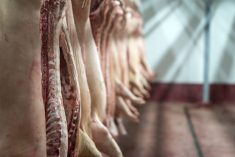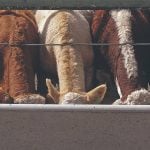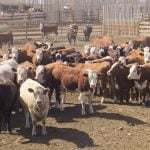Another of Canada’s major pork and poultry packers has reported significant net losses in its 2022 ledger, but sees “green shoots” suggesting a return to normal pork markets and stable supply chains this year.
Maple Leaf Foods on Thursday reported a net loss of $311.89 million on $4.739 billion in gross sales for its fiscal year ending Dec. 31, 2022, down from net earnings of $102.82 million on $4.521 billion in sales in 2021.
For its fourth quarter alone, the company booked a net loss of $41.49 million on $1.186 billion in sales, down from net earnings of $1.88 million on $1.12 billion in sales in the year-earlier period.
Read Also
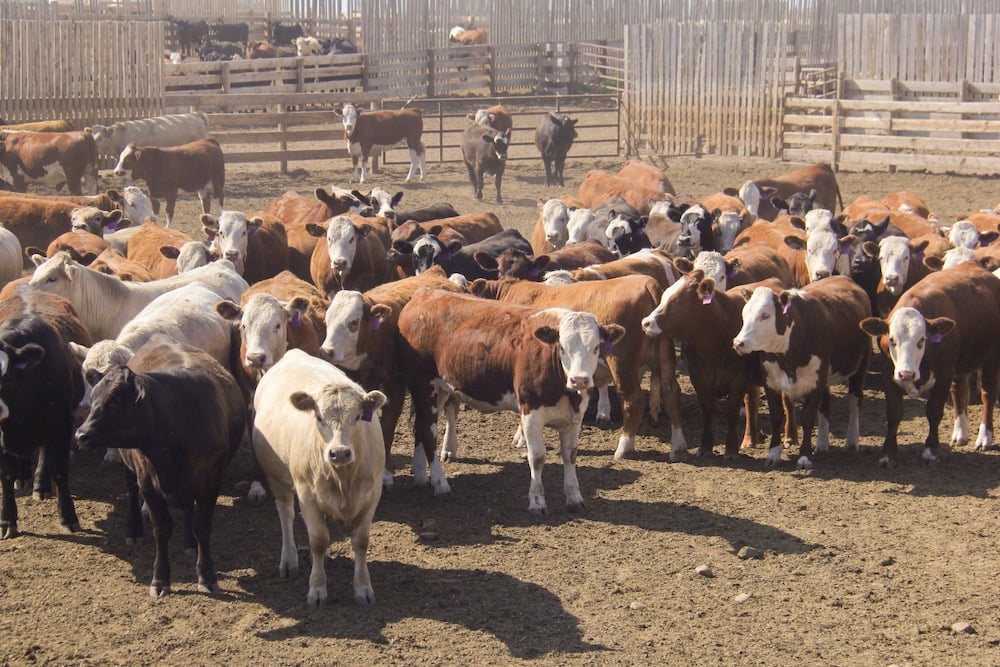
U.S. livestock: Feeder cattle rise to new highs on tight supply, strong cash prices
Chicago | Reuters – Chicago Mercantile Exchange feeder cattle futures rallied on Thursday to a record high on strong cash…
The past year “was clearly a year of unprecedented challenges for us on many fronts, including hyper-inflation, dislocation in the pork markets, supply chain dysfunction, job vacancies and a cyberattack,” CEO Michael McCain said in a release Thursday.
Despite all that, he said, “we have maintained a steady hand on executing our plans including aggressively building our sustainability platform, starting up over $1 billion of new assets and converting our plant-based business model to profitable growth.”
McCain said the company “continue(s) to see an inflection point in our business,” noting the ongoing startup of Maple Leaf’s new poultry processing plant at London, Ont.
The company also expects its nascent plant-based protein business is “on track to get to adjusted EBITDA (earnings before interest, taxes, depreciation and amortization) neutral or better” in the back half of 2023, he said.
The London poultry plant, construction of which was first announced in 2018 for completion in 2021, was delayed into 2022, reportedly due to wet weather and the COVID-19 pandemic. First budgeted at $660 million, the total capital spend on the new plant was pegged in Thursday’s report at $772 million.
By the end of 2023, though, the new London site is expected to have consolidated the work of five of the company’s existing Ontario poultry processing plants, four of which have been slated to be closed.
McCain told analysts on a conference call Thursday that the new London plant is expected to add $100 million to the company’s EBITDA margin on an annualized basis by the end of this year, whether the market dynamic seen in 2022 improves or not.
Another $30 million will be added to that figure during the ramp-up of the company’s “bacon centre of excellence” at its Lagimodiere Boulevard prepared meats plant in Winnipeg, also independent of the market dynamic.
The Winnipeg plant has seen expansions and upgrades in recent years for both bacon and ham processing, as the company consolidated that business from other plants across the country.
Its most recent “bacon centre of excellence” expansions, which included an additional smokehouse, two new pre-cooked bacon production lines and a new line for bacon bits and chips, involved a capital spend of $182 million, the company said Thursday.
Furthermore, company officials said exports to China have now resumed from Maple Leaf’s main hog slaughter and fresh pork cutting plant at Brandon, Man., following their suspension in 2020. The resumption of exports from Brandon to China will be “accretive to our earnings” starting early in the second quarter of 2023, the company said.
Maple Leaf and other companies are expanding back into the Chinese market just as demand for pork there is increasing and the pork supply from European exporting nations is seen to be declining, officials said.
The company said its “inflection point” will see a shift away from “pandemic-induced supply chain instability,” product prices lagging behind the current rate of inflation and a “sustained period of investing over $1 billion in new assets.”
Instead, Maple Leaf said it expects to see a transition this year to “supply chain stability.” Product pricing “to mitigate inflation” will be fully in place, also by the end of the second quarter of this year.
The company is also expecting “normalized” global pork markets, for which it said the “green shoots” are now visible.
“These unprecedented markets will normalize; they always do,” McCain said in Thursday’s release.
Maple Leaf in its fourth quarter also incurred an estimated $23 million in one-time costs from a ransomware attack on its computer systems in November.
The release of Maple Leaf’s 2022 ledger follows a report of losses from another major Canadian pork and poultry packer.
Quebec-based Olymel, the meat packing arm of Sollio Co-operative Group, in February reported a $445.7 million loss on $4.6 billion in sales for its fiscal year ending last Oct. 29. — Glacier FarmMedia Network






